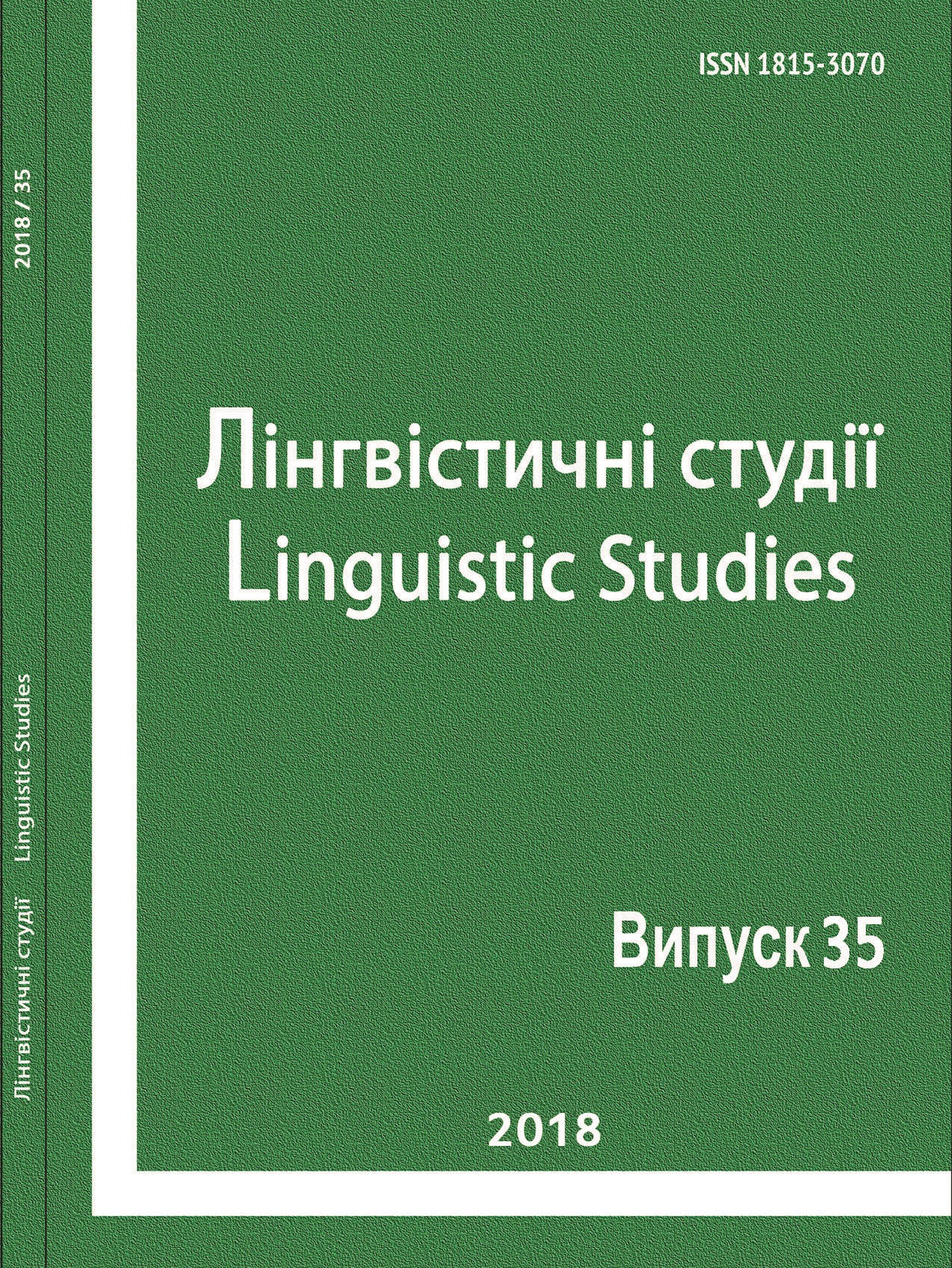The Role of Language-Game in Realization of Phenomenological Experiments of Taras Prokhasko.
DOI:
https://doi.org/10.31558/1815-3070.2018.35.19Keywords:
idiostyle, language-game, receptions of language-game, syntactic organization of text, phenomenology, postmodernismAbstract
Phenomenological experiments by T. Prokhasko are primarily related with the attempts of the characters in his texts to objectively describe and learn what is usually considered to be subjective - consciousness, feeling, perception. Verbalization of such a life philosophy has affected the specifics of the language in his works. The language-game in the texts of the collection "The Lexicon of Secret Knowledge" is used on the phonetic, lexical and syntactic levels. Language-game on the syntactic level is crucial for writer’s idiostyle, because it is created by using stream of consciousness technique, cataloging, cinematography, recombination, detailing, etc. Language-game on the syntactic level is used to put emphasis on the details of the author's point of view, in an attempt to present reality not by the description of the reality, but by passing impressions of it. Because of that the syntax of Taras Prokhasko is complex and consists of repetitions, chiasmuses, amplifications, and other types of complex sentence structure. All of this is in order to convey the aesthetic principles of phenomenology to the reader.References
Beregovskaia, Eda. Ocherky po ekspressyvnomu sintaksisu (Essays about expressive syntax). Moscow: Rokhos, 2004. Print.
Holoborodko, Yaroslav. Artegraund. Ukrainskyi literaturnyi isteblishment (Underground. Ukrainian literary establishment). Kyiv: Fakt, 2006. Print.
Hundorova, Tamara. Pisliachornobylska biblioteka. Ukrainskyi literaturnyi posmodern (Post-Chornobyl Library: Ukrainian Literary Postmodernism). Kyiv: «Chasopys «Krytyka», 2005. Print.
Izdryk, Yurii. “...Pro...za...pro (Pro...se...pro)” Leksykon taiemnykh znan (Lexicon of secret knowledge) by Prokhasko Taras. Lwiw: Kalvariia, 2006. Print.
Izdryk, Yurii. “Taras Prokhasko: Neirobiolohiia landshaftu (Taras Prokhasko: Neurobiology of the landscape)”. Istoriia literatury v avtorakh i tekstakh (The history of literature: authors and texts) (2014). Web. 1 Oct. 2017.
Prokhasko, Taras. Leksykon taiemnykh znan (Lexicon of secret knowledge). Lwiw: Kalvariia, 2006. Print.
Rossman, Vadim. “Tekhniki punktuatsii: znak prepinanyia kak filosofskii metod (Punctuation techniques: punctuation as a philosophical method)”. Voprosy filosofii (Issues of philosophy) 4 (2003): 68–76. Print.
Stefanovska, Lidiia. “Dovhe pidvodne plavannia (Long scuba diving)”. Leksykon taiemnykh znan (Lexicon of secret knowledge) by Prokhasko Taras. Lwiw: Kalvariia, 2006. Print.
Tepshych, Anastasiia Movna hra yak dominanta postmodernoho dyskursu (na materiali prozovykh tvoriv predstavnykiv stanislavskoho fenomena) (The language game as the dominant of postmodern discourse (based on the prose works of representatives of the Stanislav phenomenon). Belgrade; Vinnytsia: Nilan-LTD, 2017. Print.
Yermolenko, Svitlana. Syntaksys i stylistychna semantyka (Syntax and semantics of stylistic). Kyiv: Naukova dumka, 1982. Print.


